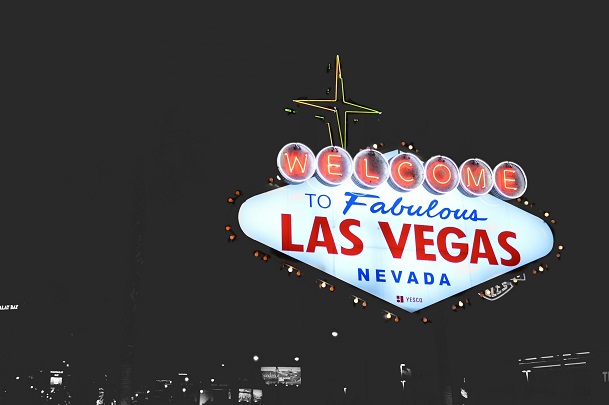On November 7, 2000, Nevada became one of the early adopters of medical marijuana. However, it was not until two years ago, in November 2016, that recreational marijuana was legalized.
As recreational use is relatively new, many are unaware of the very specific laws governing its use, purchase, transportation, cultivation and a host of other concerns. Additionally, certain laws can unknowingly put out-of-state visitors at the risk of hefty fines and other penalties.
With the massive and continuous influx of tourists into Nevada, largely due to the attraction of Las Vegas, this is extremely important information to know that most visitors are unaware of.
To ensure that both residents and visitors have the knowledge to safely and legally use recreational marijuana in Nevada, we have created this comprehensive article on what visitors and residents need to know about Nevada recreational marijuana use.
Who Can Purchase Recreational Marijuana?
Any individual 21 years or older with valid identification can purchase marijuana for recreational use, whether a resident of Nevada or a visitor. It is important to note, however, that anyone above 18 years of age with a valid medical marijuana card (Nevada or out-of-state) can purchase medical marijuana.
Where Can I Purchase Recreational Marijuana Legally?
Cannabis can be legally purchased at a number of licensed marijuana dispensaries throughout the state.
Many of these are dual-license, meaning they are allowed to sell both recreational and medical marijuana. Unsurprisingly, the highest concentration of dispensaries are located in more populous areas like Las Vegas and Nevada.
It is very simple to ensure a dispensary is licensed — and worth the effort to check, as purchasing from an unlicensed dispensary or delivery service is no less illegal that purchasing from a dealer or other black market supplier.
How Much Marijuana Can I Purchase Legally?
When purchased for recreational use, a maximum of one ounce of cannabis flower or one-eight of an ounce of concentrate is allowed per transaction.
Here, as in a number of cases, the rules for recreational marijuana differ from that of medical marijuana. Medical users with a valid card are allowed to purchase 2.5 ounces of marijuana products, which are deemed ‘usable marijuana’, every two weeks. This applies to flower, concentrates and any other type of marijuana product.
How Much Marijuana Can I Legally Have in My Possession?
Sensibly, the possession limits line up with the purchase limits — that is, a single ounce of flower or 1/8 ounce of concentrate for recreational use, and 2.5oz of any manner of usable marijuana for card carrying medical patients.
The implications of this are clear — going to multiple dispensaries to buy the maximum amount of marijuana in a single trip will find out running afoul of the law, and if caught, you may face stiff penalties.
While a first offence of carrying more than one ounce may often result in probation, a judge has the option to penalize this or a second offence with up to 4 years in prison and/or fines up to $5,000. A third offence, meanwhile, carries similar risk of jail time with the maximum possible fine skyrocketing to $50,000.
Any amount of cannabis over 50 lbs. results in an automatic trafficking charge, with the law providing for anywhere from a year’s incarceration to life imprisonment.
What Are the Laws Regarding Transport of Recreational Marijuana?
The law is quite reasonable when it comes to transporting recreational marijuana. Again, you may have no more than an ounce of flower or 1/8 of concentrate. Much like alcohol, this must be in a securely sealed container, and if in a car, placed well out of the reach of the driver.
To be sure you are in compliance, it is suggested that marijuana be placed in your trunk for the duration of your journey. If there are minors in the vehicle, cannabis must be placed in the trunk — or else you may run the risk of being charged with the more serious ‘possession with aggravating circumstances’ citation.
Under no circumstances can recreational marijuana be transported across state lines — this holds true even if the adjoining state also allows recreational marijuana use (e.g. California). Of course, recreational marijuana cannot be carried onto planes.
Where Can You Smoke Recreational Marijuana in Nevada?
This is a question that is important to all recreational cannabis users, but is of vital knowledge to visitors.
The first and arguably most important restriction is that consumption of marijuana is not permitted in public spaces or on federal land. In short, marijuana can only be used on private property.
For residents, this simply equates to smoking/consuming marijuana at home or at the homes of friends. For out-of-towners, however, this presents a challenge. Most hotels, even those with smoking rooms or sections, do not allow the consumption of cannabis on their property. Those found using marijuana can often be subject to an in-house fine, and in the worst case, ejected from the hotel.
If, as a visitor, you are staying with friends, this would be the place to use your legal recreational marijuana. If, however, you do not have acquaintances in town and plan to legally consume cannabis, it may be wise to plan your lodging with this in consideration.
One option is to secure private lodging through home-sharing sites such as AirBnb and similar services. Asking whether the owners will allow smoking on the property up front will avoid possible issues later on.
As marijuana is still illegal at the federal level, landlords and homeowner are not required to allow you to smoke cannabis when you rent their properties. There are also websites specific to marijuana-friendly lodging, inlcuding:
There are also lists of ‘cannabis friendly’ hotels — however, visitors should be sure to investigate further their hotel’s stance on marijuana use as this is by nature a less cut-and-dry situation.
Visiting Las Vegas and plan to do some gambling? You should note that casinos tend to be some of the strictest venues when it comes to enforcing the non-consumption of marijuana. Due to notoriously tight gaming regulations, casinos and other gaming establishments by and large frown upon any activity that could endanger their licenses. Unless expressly supported by the casino, your best bet is to save the cannabis consumption for home or for your private temporary lodging.
Under no circumstances is the consumption of recreational cannabis allowed inside a vehicle. This does not only apply to the driver — even if you are the passenger in the backseat, smoking or consuming marijuana in any vehicle is illegal. Those found contravening the public consumption law can be charged with a misdemeanor and risk jail time of up to six months or fines ranging from $600 to $1,000.
The issue of Cannabis lounges and cafes is set to be revisited in 2019 by lawmakers. While entrepreneurs are hopeful for a positive outcome and some have already begun to advertise their prospective establishments, any such business currently in operation is most likely conducting an illegal operation, and it would be wise to avoid smoking marijuana on their premises.
Can I Drive Under the Influence of Marijuana?
The answer to this question is a resounding ‘no’. Just as with alcohol, drivers found to be operating a motor vehicle while under the influence of marijuana can be charged with a DUI (Driving Under the Influence).
In Nevada, if a motorist is observed to be driving erratically or in any manner which is deemed suspicious, officers can pull him or her over and subject the driver to a field test and/or blood and urine tests. This means that officers can charge you with driving under the influences using the following guidelines:
- Observed Impairment — Through their initial observations and a suspected impaired driver’s performance in a field test, officers can allege that the driver has consumed enough marijuana to negatively affect his or her ability to safely operate a vehicle.
- Measured Impairment (Blood) — The law has decided if a driver’s blood contains 2 nanograms or more per milliliter of marijuana’s principal psychoactive ingredient, tetrahydrocannabinol (THC), or 5 nanograms or more per milliliter of THC metabolite, which the body converts THC into before excreting it as waste, the driver will be charged with DUI.
- Measured Impairment (Urine) — If a driver’s urine is found to contain ten nanograms or more of THC, or 15 nanograms or more of THC metabolite, that motorist can then be charged with DUI.
Naturally, if authorities find marijuana, smoked or unsmoked, in the vehicle, can smell the scent of marijuana in the vehicle or on your person, and other such factors, they can strengthen their case for DUI. Claiming you are ‘not too high to drive’ or ‘know how to drive while high’ are not valid arguments for avoiding a DUI charge.
Once you run afoul of the “per-se” DUI law (measured impairment), arguments as to whether you were still under the influence become legally irrelevant. A more expansive explanation of Nevada marijuana DUI laws can be found here.
Can I Go to Work Under the Influence Of Marijuana/Consume Marijuana at Work?
Like homeowners and landlords, the fact that marijuana is not legal at the federal level allows business owners to choose whether employees may or may not consume marijuana on their private premises. By the same token, they also have the right to fire employees that are found to be consuming marijuana in the workplace.
With no state laws to contradict them, federal law also allows employers to subject both potential and current employees to drug tests as well. The reality of testing varies from employer to employer. Some test only if they suspect an employee is working under the influence, some employ regular random testing, and some do not test at all.
As a recreational marijuana user, you should speak with your current or prospective employer — or, if it is not wise to do so, ask other knowledgeable employees what the company’s stance is on marijuana use on and off the premises.
How Long Does Marijuana Stay in My System?
Taking into consideration DUI laws and the possibility of work-related drug testing, this is an extremely important question. Unfortunately, it is also a complex one that does not have a black and white answer.
The reason for this is simply the biology of how our bodies process marijuana. A number of factors can cause considerable differences in how long signs of cannabis use can show up when tested, just a few of which include:
- How fast or slow an individual’s metabolism acts
- Weight
- Other biological factors
- Regularity and volume of marijuana smoked
- Age
- And more
With that taken into consideration, these are some rough guidelines to consider:
- A ‘catch-all’ estimate of 30 days has been given as the answer to how long marijuana stays in your system. However this is not particularly accurate, and certainly does not necessarily apply to all testing types.
- THC is quickly absorbed into the blood and also leaves the blood relatively quickly. An estimate of 24 hours has been given for individuals that do not regularly use marijuana, while for heavy users THC may be detectable for up to a week. In the amounts looked for by authorities with respect to DUI, it is generally a safe bet to drive if you have not smoked marijuana that day.
- THC can be detected in the urine for far longer than in blood. Estimates put detection of THC at anywhere from 5 days to more than two months, depending on the volume of THC consumed and the regularity of consumption by the individual.
- The THC metabolites previously mentioned are actually stored in fat cells prior to being excreted. This means that means that regular marijuana users can test positive for marijuana metabolites for as long as 90 days or more after their last use.
As you can see, the question of length of time THC can be detected is far from an exact science. In the case of DUI, blood tests are most often administered — while far from perfect, these seem to give the most reasonable results.
However, other tests could theoretically be administered including urine and/or saliva tests. The situation becomes far more involved when considering work-related testing, which often follows a zero-tolerance policy. If this is the case, urine testing will likely pick up signs of marijuana consumption is the lightest of users.
If you plan on applying to a new job in Nevada that may institute drug testing, or foresee any other situation where drug testing is likely, your best bet may be to cease consumption of marijuana entirely as far as 90 days before any potential tests are administered. Be aware that many large employers (e.g. MGM Grand) still test for marijuana use.
Can I Grow Recreational Marijuana in Nevada?
Private citizens are allowed to grow marijuana for their personal use, but there are strict restrictions to what this may entail. These restrictions include the following:
- An individual may not grow more than 6 plants.
- No household may have more than 12 plants growing, regardless of the number of residents.
- Plants cannot be grown within 25 miles of a dispensary.
- The plants must be in an enclosed space and not visible to the public using normal unaided vision.
- Cultivation on property you are not lawfully in possession of is an offence.
- Cultivation in property you are lawfully in possession of but not the owner, and do not have the owner’s express permission, is an offence.
- Recreational users and growers (i.e. non-commercial) are not permitted to extract concentrated cannabis from their plants.
It is important to note the laws in Nevada refer to ‘cultivation’. This does not only entail the act of having a plant. Rather, cultivation includes:
- Planting
- Growing
- Harvesting
- Drying
- Manufacturing
- Propagating
- Processing
Can I Legally Purchase Marijuana From a Resident Growing It Legally?
Under no circumstances can an individual, local or from out of state, purchase any amount of marijuana from a recreational grower. This is looked upon no differently than buying cannabis from a street dealer, and if caught doing so, you will face the same penalties.
What many do not realize is that this has other implications beyond outright illegally purchasing marijuana from an unauthorized individual.
For example, imagine you forgot your ID, so you give your friend gas money to drive to his home out of the city and bring you some of his home-grown marijuana. In the eyes of the law, you have illegally purchased cannabis from an unlicensed source, and both of you are now subject to prosecution.
The fact that the intention of the money exchanged was not to pay for the marijuana will not necessarily be recognized by the law. This is a prime example of, when acquiring recreational marijuana in Nevada, it is wise to simply stick to the rule of licensed dispensaries being the only acceptable source.
How Might Marijuana Charges Affect Me Beyond Fines and Imprisonment?
Naturally, the thought of hefty fines and being imprisoned for being found guilty of marijuana-related charges is daunting enough. However, marijuana charges — and even marijuana use — can have other, often long-lasting effects. The majority of these are as a result of marijuana’s continued status as illegal under federal law. These include:
- Housing — Marijuana charges can make it difficult to obtain federally subsidized housing. They may also put any currently received federal housing benefits in jeopardy.
- Firearm purchase/possession— Due to federal checks and questionnaires that go along with firearm purchases, an existing marijuana conviction may result in your application to purchase a firearm being denied.
- Access to federal buildings and land— While you may be carrying under an ounce of marijuana in a closed container and be within the law ‘around town’, you may not legally enter a federal building or step onto federally owned land with any volume of marijuana. Doing so can put you at risk of facing federal drug charges.
- Access to federally related employment— Federal employers, as well as those that receive a significant amount of federal funding, are beholden to the Drug Free Workplace Act of 1988. This means that many federal contractors and any organization or employer that has received a federal grant agree that they shall provide a completely drug-free workplace.
- Financial Aid for students— This is extremely important for both resident and out-of-state students to know. If you are applying for federal student aid in Nevada, or currently receiving federal student aid, you could be denied or lose your benefits due to marijuana charges. The Higher Education Act of 1998 outlines how charges could affect your eligibility.
Safe and Legal Recreational Marijuana Purchase In Nevada
With all the information provided here, you can now confidently, safely and most important, legally enjoy recreational marijuana in the state of Nevada.
For the widest selection and highest quality of recreational and medical cannabis, visit Shango Las Vegas’ flagship location.
With dispensaries in Nevada, Oregon, Washington, California and Michigan, Shango Las Vegas is set to include a state of the art cultivation facility, an in-house kitchen to allow for the freshest and most accurately dosed edibles, and an expansive retail space. Shango’s fine products can also be found at select retailers.


